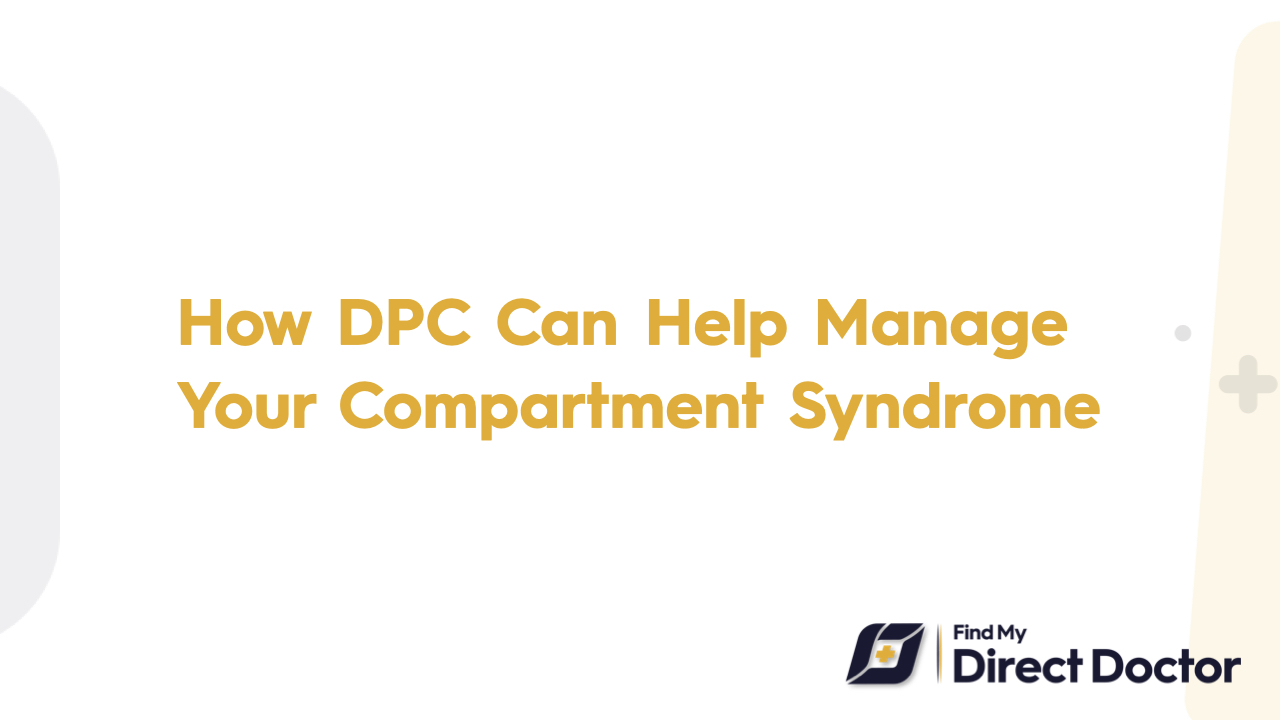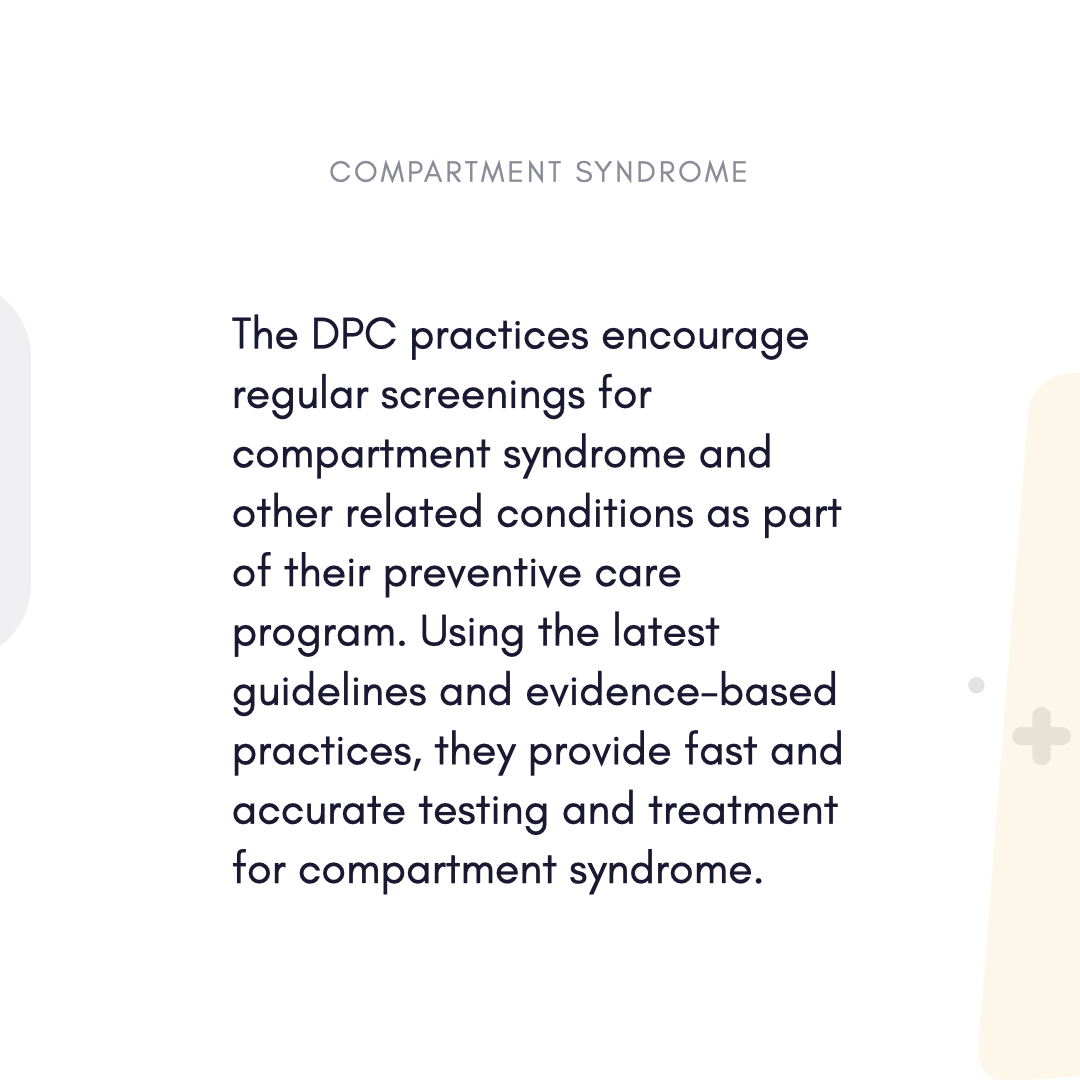Compartment Syndrome and Direct Primary Care (DPC): Timely, Coordinated Care to Prevent Permanent Damage
Rising pressure inside a muscle compartment limits blood flow, causing permanent muscle and nerve damage in a medical emergency known as compartment syndrome. While athletes with chronic exertional compartment syndrome (CECS) need close observation, acute cases—usually from fractures or trauma—demand immediate surgical intervention (fasciotomy). Early detection, urgent coordination, and individualized recovery for this time-sensitive condition depend critically on Direct Primary Care (DPC), a membership-based model stressing access and continuity.

DPC-Enhanced Compartment Syndrome Management (Early Detection & Referrals)
- Comprehensive evaluation: Extended visits assess hallmark symptoms (disproportionate pain, paresthesia, pallor, paralysis) and differentiate mimics (DVT, fractures).
- Rapid surgical coordination: Direct referrals to orthopedists/ER ensure timely fasciotomy to prevent tissue death.
- Chronic CECS care: Adjust training intensity, footwear, or biomechanics with physical therapists to reduce pressure spikes.
- Non-surgical relief: Guide anti-inflammatories, icing, and gait analysis for exertional pain.
- Post-op monitoring: Track wound healing, infection risks, or nerve damage during recovery.
Customized DPC Management (Tailored Care)
- High-risk follow-ups: Monitor athletes/post-injury patients for compartment pressures or symptoms.
- Patient education: Teach early warning signs (numbness, swelling) and prompt treatment steps.
- Holistic support: Advise anti-inflammatory diets, ergonomic changes, and mental health resources for activity-related anxiety.
Why DPC Stands Out for Compartment Syndrome? (Key Advantages)
- Same-day visits: Ensure rapid assessment during acute flares, minimizing critical care delays.
- Care coordination: Act as "quarterbacks" to streamline surgeon, PT, and rehab team interactions.
- Cost transparency: Flat monthly fees (USD 50–150) eliminate surprise bills for follow-ups/specialist copays.
Limitations (Important Considerations)
- DPC does not replace emergency surgery, hospital stays, or advanced diagnostics (intracompartmental pressure testing).
- Acute cases require immediate surgical intervention beyond DPC’s scope.
Final Notes (Proactive Recovery)
- DPC bridges gaps in compartment syndrome care via quick triage, continuous monitoring, and tailored plans.
- Strong patient-provider relationships ensure early symptom recognition and action.
- Combines accessible care with specialist coordination to transform emergencies into managed recovery journeys.
- Partnering with a DPC provider offers medical oversight and proactive support to preserve mobility and prevent lifelong complications.






